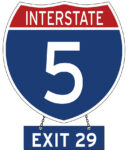 Editor’s Note: This is the 21st chapter in Volume 2 of Editor Emeritus Donald H. Harrison’s 2022 trilogy: “Schlepping and Schmoozing Along the Interstate 5.” All three books as well as others written by Harrison may be purchased from Amazon.com. Harrison may be contacted via donald.harrison@sdjewishworld.com.
Editor’s Note: This is the 21st chapter in Volume 2 of Editor Emeritus Donald H. Harrison’s 2022 trilogy: “Schlepping and Schmoozing Along the Interstate 5.” All three books as well as others written by Harrison may be purchased from Amazon.com. Harrison may be contacted via donald.harrison@sdjewishworld.com.
Schlepping and Schmoozing Along the Interstate 5, Exit 29 (Genesee Avenue): Hebrew Free Loan of San Diego.
From northbound Interstate 5, take Exit 29 (Genesee Avenue) and turn right. Follow Genesee Avenue to the Hebrew Free Loan of San Diego’s offices at 9404 Genesee Avenue on the right-hand side just beyond Eastgate Mall.
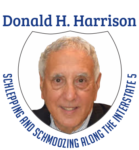
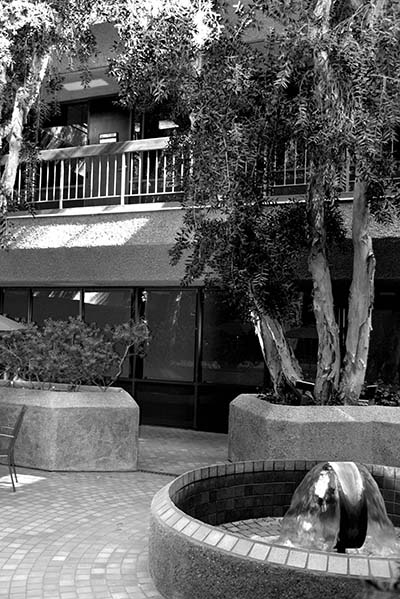
LA JOLLA, California — Torah and the medieval philosopher Maimonides inspired investor Selwyn Isakow to raise money in 2021 from friends and associates in the Jewish community to start Hebrew Free Loan of San Diego.
With Mindi Frankel, an alumna of several other nonprofit organizations serving as executive directors, HFLSD contacted more than a hundred other helpful organizations. It partnered with all the other Jewish communal organizations in the county. Then, in the latter part of the year, the newly minted Jewish community service began accepting applications and issuing interest-free loans ranging from $1,000 to $20,000.
“We are told in Deuteronomy that there will always be poor Jews and that it is our responsibility to help them, and that the highest form of charity is to prevent someone from falling into need,” Isakow commented in an interview.
“Maimonides said a loan is better than charity; it enables one to help oneself with dignity,” Isakow added. “On top of all that, we have the famous comment in Exodus which is that we shouldn’t expect interest from the needy among us.”
A community-wide study was conducted in 2019 to determine how extensive poverty is among San Diego County Jews. It found that 20 percent of the Jewish population either lived below or at the edge of poverty. Poverty level is defined as $25,365 (30 percent of Area Median Household Income). According to Isakow, the findings shocked many people in the community who had assumed that there were very few poor Jews, or that however many there were, their need were being met by government and Jewish organizations. This turned out to be untrue.
Acting upon these findings, Hebrew Free Loan of San Diego was established with a mission “to aid and empower members of the San Diego Jewish community with interest-free loans,” Frankel said. “What I like to say to people is that we are a ‘hand-up,’ not a ‘hand out.'”
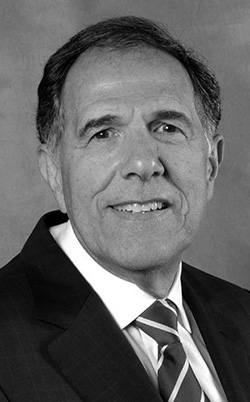
Isakow’s Oxford Investment Group provides the office suite where Hebrew Free Loan of San Diego operates. The Kindness Initiative, another non-profit tenant in which he had a hand in creating, shares the suite. The Kindness Initiative, “addresses the truly poor, those unable to repay loans,” Isakow said. “Kindness Initiative addresses all aspects of poverty. It has professional case management, supported by many dedicated volunteers, and utilizes collaborations with other Jewish and non-Jewish organizations to meet the desperate needs. It helps impoverished Jews navigate and access the services they need and the funds they need.”
Other non-profits that Isakow helped to incubate in his office suite include Shabbat San Diego, which organizes each year a community-wide celebration of Shabbat; Partners in Torah, a group created for the formal study of Jewish texts; and a Kollel, which now has a national education reach.
Hebrew Free Loan of San Diego applicants must qualify as “low-income households and be living on less than 80 percent of San Diego Median Household Income,” about $64,700 in 2021 for a single-person household. Income level requirements change based on the number of household members. Applicants must show a need for the money and show their ability to pay it back. They must find two people who will guarantee the loan in case of default. The borrowers must be Jews or live in a household where one member is Jewish. Non-Jews who work for Jewish organizations, such as synagogues or Jewish Family Service, also are eligible.
The purpose of loans very widely, including life cycle events, education, special needs, health care, parents and children in crisis, fertility, debt consolidation, and emergencies of all types. Loans for $1,000 typically are emergency loans, whereas small business loans go up to $20,000. Monthly repayment schedules are worked out between HFLSD and the borrower, with 48 months the usual maximum amount of time for repayment, except for educational loans which may be extended to 50 months.
In the 2021 start-up, HFLSD made 17 interest-free loans with commitments of approximately $150,000. During a January 2022 interview, three of these loans were recounted by Frankel, who previously had worked for a dialogue organization that brought together Jewish Israelis, Palestinians from the West Bank, and American youth.
She said that one older man, whose wife recently had passed away, had run up so much debt taking care of her that he had to move in with his daughter to try to make ends meet. “We were able to put him in a debt consolidation loan and freed up almost $500 a month in income for him,” Frankel related. “He makes me cry every time I talk to him; he is so grateful.”
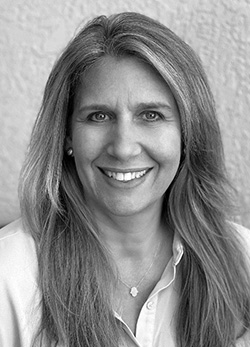
A woman who had credit card debt was in danger of being evicted. “We paid off her minimal credit card debt and then we gave her $1,000 a month and she is able to make her rent payment,” Frankel reported. “Otherwise, she wouldn’t be able to continue living where she is living, which would have cost her more money to move.”
In another case, a young woman wanted to pursue a bachelor’s degree at National University but was unable to afford the tuition. She thought she might have to settle for an associate’s degree, but “we helped her fund her college, so she will be getting her bachelor’ degree next year.”
Although the process is thorough for obtaining a free loan, Frankel says it can be accomplished in as little time as two weeks.
“All of our applications are online,” she said. “We have a general application; we have an education loan, and then we have our guarantor applications.” Once received, the application is vetted for eligibility. Is the person a San Diego County resident? Is he or she Jewish or a member of a household with someone who is? Does the non-Jewish person work for a Jewish communal organization? Assuming everything is copasetic, the applicant will be asked for certain documentation.
Prospective borrowers are asked to self-submit a credit report, whereas HFLSD pulls credit reports on prospective guarantors. Based upon the documentation, the HFLSD staff works up a budget worksheet and then there will be a phone conversation followed by a formal interview with the prospective borrower.
Interviewers are Frankel along with a member of HFLSD’s loan and collections committee and a member of the HFLSD board. “The process is really to understand their story,” said Frankel. “Why do they need this help? How is it going to help them? Do they understand the parameters of the loan?”
After the interview, the loan package is submitted to HFLSD’s loan committee, which will vote to approve or deny the loan. If it is approved, borrowers will receive within a day a promissory note, and a form authorizing HFLSD to receive direct repayments each month from the borrower’s bank. Once those signed documents are received, HFLSD issues a check for the agreed upon amount.
Many of the 17 loans were disbursed in November and December of 2021, Isakow noted. “This next year (2022) we are looking at more than doubling that number nd are hoping to re-double that number the following year.”
During its organizational year, HFLSD received from donors approximately $800,000, an amount that Isakow would like to increase. “Hopefully, eventually, we will have a very large capital base to utilize for people in need,” he said.
In addition to helping more people each year, and growing the fund to do so, Isakow says another goal is to prompt participants to become more actively involved with the Jewish community.
When the guarantors “see how it assists the people that they are guaranteeing, they realize that they would like to be more involved,” Isakow said. “It doesn’t have to be with free-loan organizations, it could be working with or donating to Federation or many other Jewish organizations, or just increasing their social interactions with Jewish organizations.”
“You know what they say in the Talmud; we are responsible for each other,” Isakow added. “When you take that responsibility seriously, you not only get involved but you create unity in the community.”
*
Donald H. Harrison is editor emeritus of San Diego Jewish World. He may be contacted via donald.harrison@sdjewishworld.com